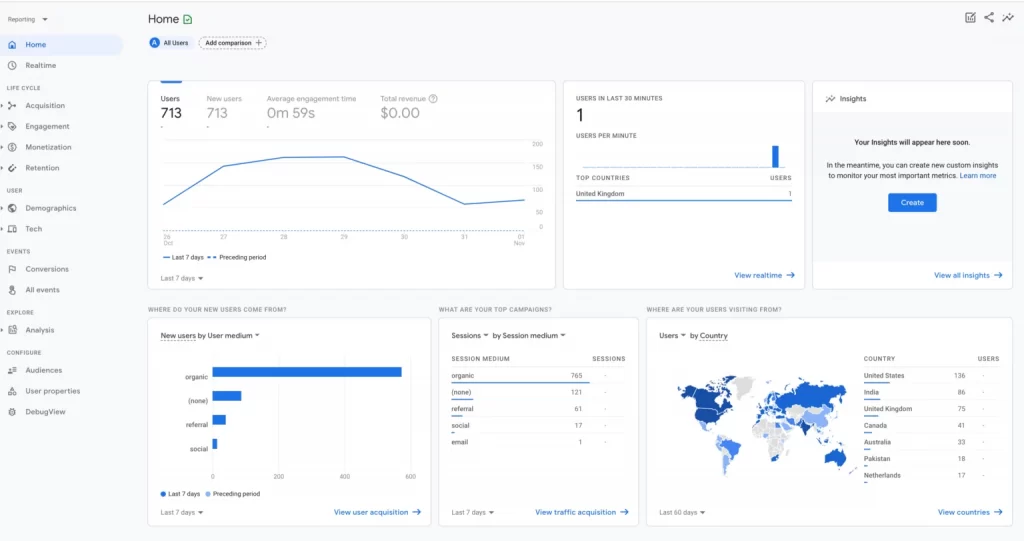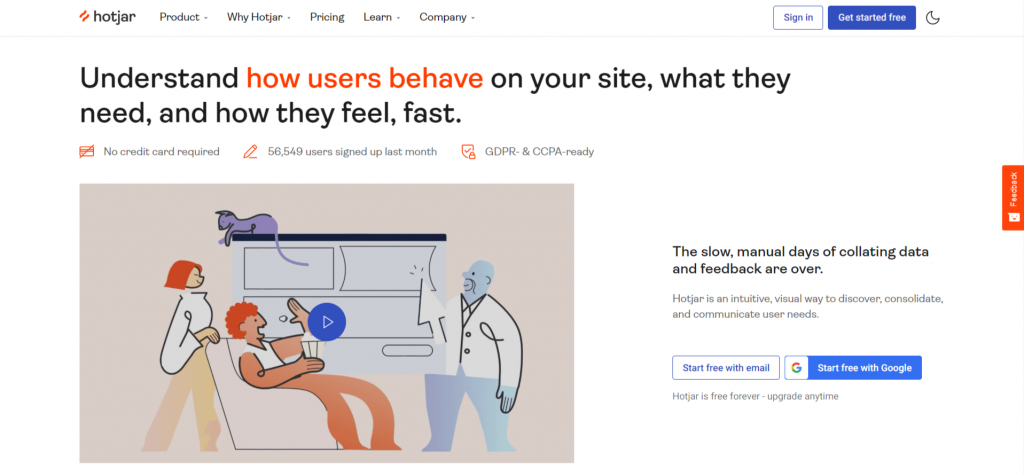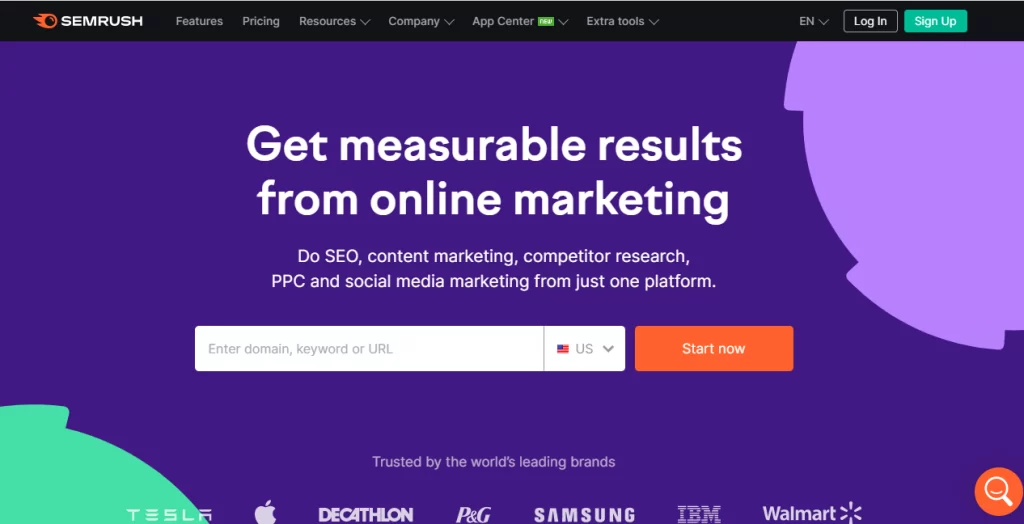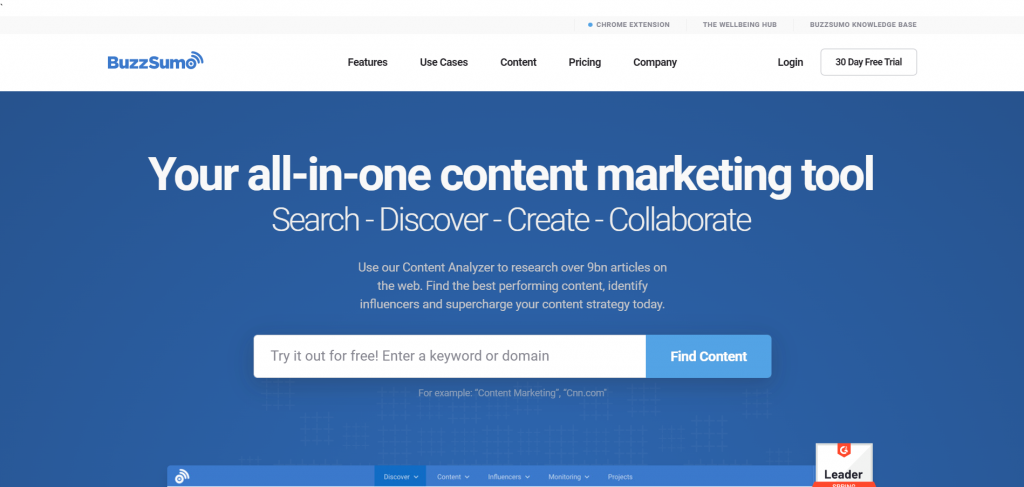When not executed correctly, content marketing campaigns may be colossal. More than half (53%) of all marketers choose to blog as their top inbound marketing strategy. Content marketing is 62% more cost-effective than conventional marketing. However, the vast majority of marketers believe they could be doing more. The fact is, the industry is flooded with too many content marketing tools. So, which one do you think you should pick? There are too many moving parts, from visual design to data analysis.
To attract customers, content marketers use and produce such material. Content like blogs, social media updates, newsletters, emails, videos, white papers, etc. When content marketing is executed correctly with the right tools for content marketing, it displays competence. In addition, it demonstrates a company’s appreciation for its clients.
Relationships are developed and maintained via the use of quality and consistent content. When clients see your company as really engaged in them, they are more inclined to choose you over rivals.
Here are a few statistics that provide content marketing with a competitive advantage and why you need the best content marketing tools:
- Blogs created by businesses generate 67% more leads.
- 47% of purchasers examine three to five pieces of material before contacting a salesperson.
- Companies that employ content marketing see 30% more growth than those that do not.
You may choose from hundreds of top content marketing tools, some of which are free or inexpensive and others that might cost thousands of dollars. In addition, they provide a wide variety of functions, from content creation and promotion to optimization and beyond. Every year, more and more tools for content marketing become available for use.
Why do you need content marketing analytics tools?
Producing content that attracts and converts website visitors into customers is made simpler with the help of top-tier content marketing tools, applications, and software.
Whether you’re marketing to other businesses or consumers, you need to ensure that your message is crystal clear and precisely aimed. The most effective content marketing software aids you in effectively relaying your company’s story to the target audience.
In the past, a catchy phrase on a billboard was sufficient. Still, with the proliferation of digital and social media, there are many opportunities to reach out to potential customers. Your duty as a marketer is to figure out how to reach your target demographic most effectively.
Articles and features that do an excellent job of selling your brand, product line, or individual product to a receptive audience may increase sales.
Because of this, successful contemporary marketing requires a solid content marketing strategy, which necessitates the ability to appeal to various demographics through various media and carefully tailored messaging.
Best Content Marketing Tools 2023
By enhancing the quality of content production and simplifying the whole content marketing approach, content marketing research tools may help you save both time and money. You may use them to generate ideas for blog posts, connect with your target audience, encourage site visitors to take action, and more. Your success as a digital marketer will depend on how well you use these content marketing tools.
1. Google Analytics

Most websites also utilize Google Analytics, a vital content marketing tool. Setting up behavioural events allows you to monitor user activity beyond product sales and form submissions.
The greatest aspect is that it does not cost anything and is simple. Your website’s data will be tracked automatically after you’ve created a Google Analytics account and pasted the tracking code into your site’s code.
Google Analytics is the best tool for tracking the success of a content marketing campaign.
One of our favourite views is Landing Pages, which can be found under Behavior > Site Content. Here, you may see how effective your content is (according to the pages from which people are visiting your site) by using:
- Alterations and the Alteration Rate
- Visit duration Visit quantity Bounce rate
- Those who are new vs those who have visited before
Using this information, you may fine-tune your content for maximum impact. For instance, conversion rate optimization (CRO) efforts may be prompted by discovering a poor conversion rate on a high-intent page that you feel should be converting better.
On the other hand, if you’re technically savvy and know how to configure it properly, it may be effective. For example, you may set up behavioural events like scroll-depth in addition to tracking conventional objectives like form submissions and sales.
The best part is that you don’t have to get into trouble to obtain all this information. Getting started with Google Analytics is as easy as creating an account, copying some code, and pasting it into your website. After you set up Google Analytics to monitor your site, it will begin collecting data immediately.
2. Ahrefs

In-depth content marketing analytics tools are what you need! Get Ahref.
By using the resources provided by Ahrefs, content marketing choices may be made with confidence and based on hard facts. Thousands of content marketers use Ahrefs every day; here are three things you can do, too:
With Ahrefs’ Keywords Explorer, a research tool that helps you identify fresh keyword ideas for content, you can see what your prospective consumers are putting into Google. Keyword statistics may be retrieved after a search and filtering process, including search volume, Traffic Potential (T.P.), Keyword Difficulty (K.D.), and more.
Use Ahrefs’ Site Explorer to analyze rivals’ content and traffic. You may uncover information about organic search traffic, keyword rankings for competitors, backlinks to pages, and more by searching any site in it.
Use Ahrefs’ Content Explorer, a research tool that allows you to uncover relevant content in your business that receives a lot of organic search traffic gets social shares and creates backlinks to see which pieces of content are working the best.
3. Hotjar

Hotjar’s heatmap and visitor recording capabilities are particularly well-known. It helps see how visitors engage with your site. For example, you can get a visual summary of where people are navigating and clicking with heatmaps. In addition, you can see precisely what they’re viewing with (GDPR-compliant) session recordings.
However, that’s not all of it. Tools for analyzing user activity are more extensive in Hotjar. Its user surveys feature is very helpful for content promotion. You may query people directly, like whether they found what they sought in your material.
Using a heatmap, you can compare the performance of various calls to action (such as contextual anchors, sidebars, and CTA blocks) and fine-tune your approach appropriately.
4. SEMrush

Since we’re discussing competitors at length with the help of A.I. content marketing tools, how would you want us to dig in a little further? When you sign up for SEMrush, you can see how your competition uses paid and organic search, display advertising, and link building. Furthermore, regarding SEO (Search Engine Optimization), one of the most important aspects of content marketing, SEMrush offers one of the top services available in an unrivalled platform (SEO).
Why bother writing a fantastic piece if no one will check it out? Instead, you may use SEMrush to do a Technical SEO Audit, gather your company’s Semantic Core, and monitor your rankings. And, naturally, your rivals.
5. Canva

A do-it-yourself graphic editor for all your online media needs, including social media, presentations, websites, and more.
Canva is a user-friendly drag-and-drop interface for those who are not trained, graphic artists.
It’s an excellent replacement for “expert” design programmes like Photoshop and Illustrator. Even novices can make impressive images without any prior training in graphic design.
Featured pictures for blogs, video and podcast thumbnails, social media graphics, and more can all be created with the aid of Canva.
This one is a cinch. The ability to edit images with Canva is fantastic, but I like the background removal feature. When I started marketing, it was a significant nuisance to crop off an image’s backdrop. It usually requires knowledge of a programme like Photoshop.
The background removal tool in Canva is convenient, always works, and doesn’t call for any knowledge of graphic design on your part.
Besides, I believe Canva’s extensive collection of premade layouts is a prominent selling feature. Creating a professional-looking design is a breeze when working off of premade templates with good typography, colour scheme, and space built in.
Also Read: 7 Effective AI Marketing Tools in 2023 For Business Growth
6. Trello

Trello is the solution to the problem of how to make planning and collaboration enjoyable. Boards represent projects and tasks by cards. All of your work may be stored in one location for easy management. It’s also compatible with a wide variety of content marketing tools.
Useful primarily for: Managing several projects and tasks at once.
By centralizing your team’s work in one location, the best content marketing tools like Trello can adapt to your ever-evolving requirements.
After you begin serious content creation, you’ll need a system to keep track of everything. It is essential to keep this in mind while dealing with a large team of writers, whether they are permanent employees or freelancers.
This is why Trello is the best content marketing tool for this purpose.
Trello’s flexibility stems from its being both a kanban board and a project management tool. The list of things I’ve put to use includes growth experiments, sales pipelines, and product development roadmaps.
7. WordPress

Users may rapidly put up a website with the help of these templates, which can be altered to suit their needs. In addition, it works with a wide variety of add-ons to help you achieve even more with your projects.
WordPress has more users than any other content management system. According to the Search Engine Journal, about 39.5% of all websites are powered by WordPress.
In this situation, though, it turns out that WordPress is a powerful tool, both in the early stages and as you build your content marketing campaign (and is utilized by sites like The New Yorker and The Next Web, which should give you some idea of its reliability and popularity).
WordPress is essentially an open-source content management system that can be used to host and construct websites. Either you or WordPress.com may host your site. Whether you’re setting up a blog, a portfolio, or an online shop, WordPress’s plugin architecture and template system will allow you to make your site look and function exactly as you want it to.
Bloggers love it because it’s so flexible.
8. Google Docs

It’s hassle-free to use and comes at no cost. As a result, Google Docs is an indispensable tool for anybody with even rudimentary word processing skills.
The content marketing equivalent of a kitchen, Google Docs, is where everything is prepared for presentation.
I can’t think of a single content marketer who doesn’t utilize Google Docs to plan their posts. It’s not only the most effective platform for teamwork but also very user-friendly and fun to play about.
You may upload papers for your team to review with just a few clicks. Moreover, the “suggestions” and “comments” capabilities allow you to grant certain users editing privileges and read their feedback.
It’s also not uncommon to discover a technique to import Google Docs straight into your CMS. However, using a plugin like Wordable may make your work easier on WordPress.
Google Docs is a joy to work with, accessible, widely used, and easy to use. As a result, there aren’t very many caveats to its usage.
9. Buzzsumo

Buzzsumo is robust and tops the list of best content marketing research tools. With this tool’s guidance, determine what kind of material will do well for any given subject. For example, top trending topics and the kind of headlines receiving the most attention may be found for just about any subject. Moreover, you may learn about the significant players in your field and network with them to expand your company’s reach.
In particular, it helps gather information on content trends and monitor performance indicators.
10. Grammarly

A valuable aid for producing polished, professional-sounding writing.
Making sure your writing is error-free before publication is a fundamental principle of providing valuable material. Grammarly is renowned for catching typos, misspellings, and other writing flaws.
It’s a beautiful tool for reducing the time spent checking for errors before publishing.
The Grammarly Chrome add-on is excellent. This means you can use Grammarly from any web browser without copying and pasting your work into a separate editor and then back into your original workspace.
End Note
So, that was the end of our list for content marketing tools 2023. It would help if you thought about the scope of your organization and the goals you want to achieve with your marketing efforts before settling on a specific content marketing tool. Content management, marketing, and advertising on social media are all aided by various content marketing solutions.
Find out whether the software has premade web page templates so you can give your site a polished look and feel without having to hire a designer. Also, verify the availability of teamwork options if many persons will be using the tools simultaneously.
Finally, check out the price options and the quality of the customer service. And if you want to outsource all your digital marketing tasks, contact us now!
